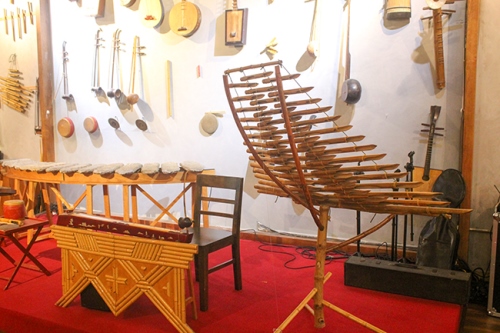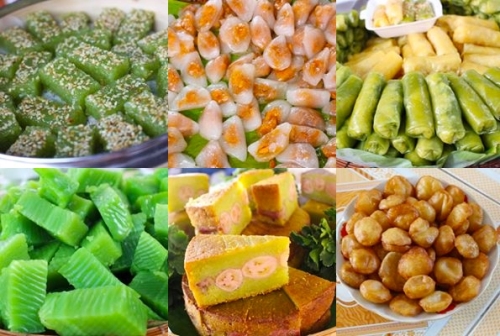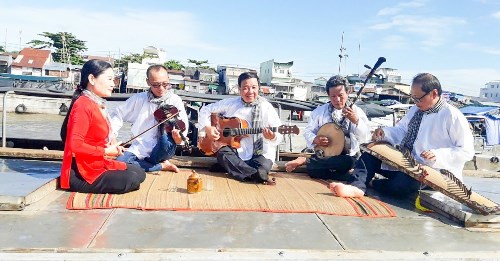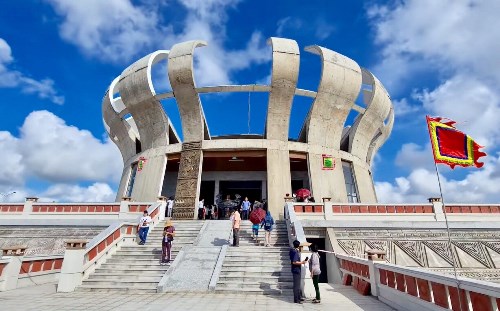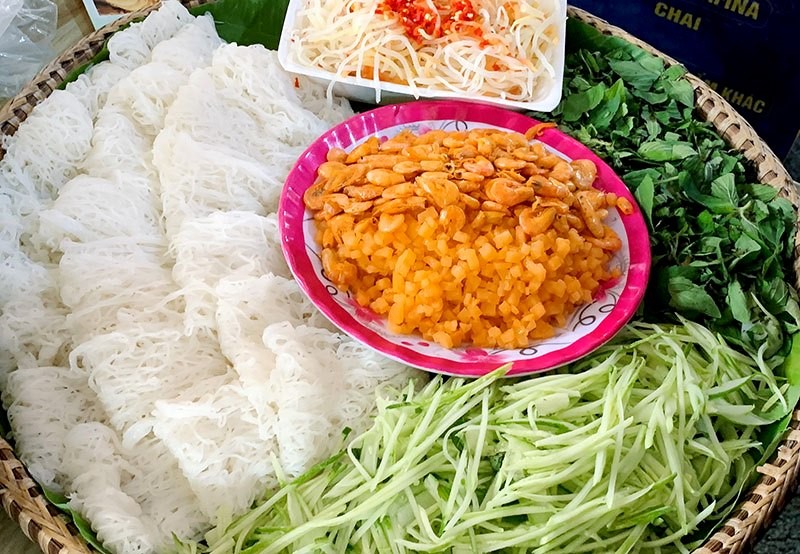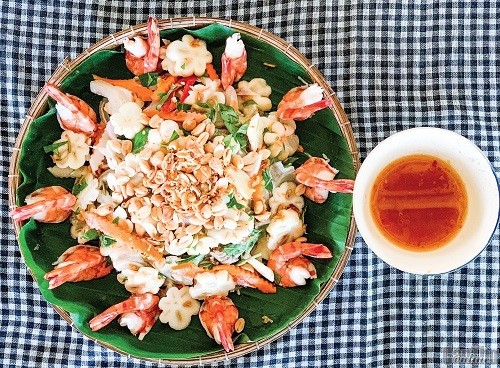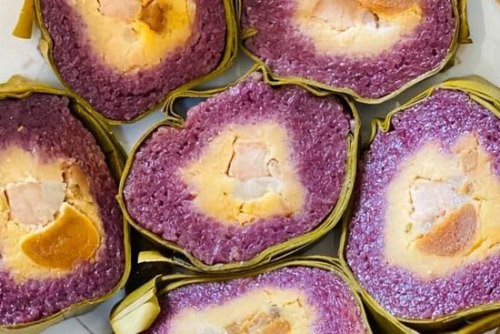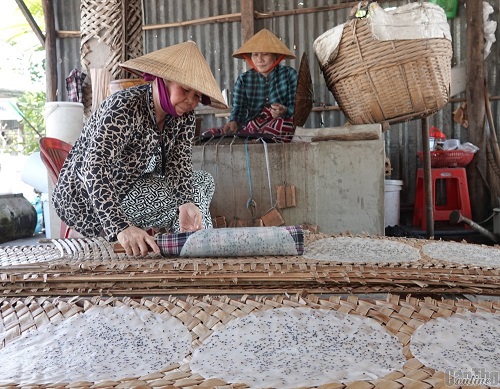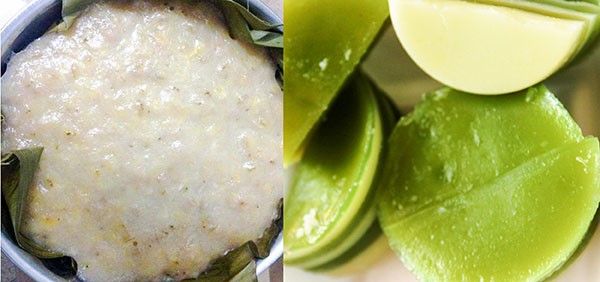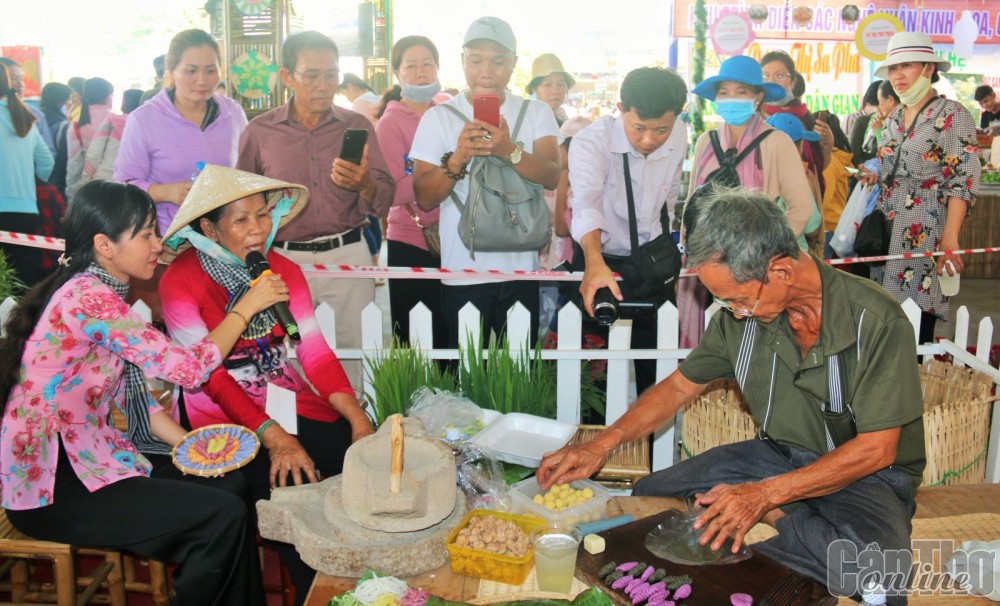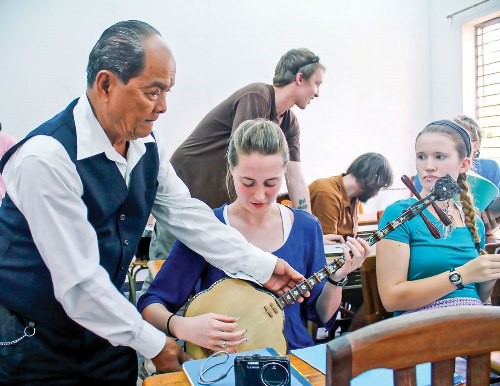
“5 tons of banana leaves, sweet potato stems, cassava leaves, Indian taro, chili, lemongrass, cattails, water mimosa,” says Nguyen Ngoc Trai. Holding the phone on one hand and jotting down the order with the other, he looks as if he were “delivering" goods to traditional markets in Can Tho, but this goes to Australia! In response to my surprise, he smiles and says, "Despite the simplicity, these products are favored by overseas people. They are now selling like hot cakes."
Nguyen Ngoc Trai is the Director of BJ&T Joint Stock Company in Long Tuyen Ward, Binh Thuy District. In the past 8 years, he has been highly successful in exporting “unique” goods. Regarding BJ&T products, they are not only selling tropical fruit, roots but also bean curd sheets, rice vermicelli, etc. Additionally, exported lemongrass, galangal carrot, banana leaves, chopped green papaya, cassava leaves, sesbania sesban, you name it, are frozen, packaged, and loaded on containers. Vietnamese produce has started a new chapter.
Furthermore, as for overseas Vietnamese, it is heartwarming for them to come across Vietnamese vegetables and fruit overseas. His company purchases about 400-500 tons of raw materials every month. Thus, it contributes to the product consumption in Can Tho in particular and the in Mekong Delta provinces in general. He adds, “As a resident of Long Tuyen, Can Tho, I’m always driven to do something for my hometown. I highly appreciate vegetables and fish grown and raised at home.” From perception to action, Mr. Trai has upgraded home-grown produce and introduced rustic Southern cuisine to the world.

Artisan Phuong Anh putting on makeup in preparation for a play. Photo: Duy Khoi
Speaking of Can Tho, researcher Son Nam has said that the city is easy-living and flexible. It is of great cultural features in a liberal way. At that point, it reminded me of Hat Boi (Tuong) Artisan Phuong Anh. Last year, a Vietnamese documentary film was introduced, giving both domestic and overseas audiences a favorable impression. It is called “The Glorious Pain (Ðoạn trường vinh hoa)” Phuong Anh, the protagonist, is the last female leader of Tuong troupe in the Mekong Delta. Her troupe came from one village to another and performed in harmony with the traditional music bands in the first ceremony of the Ky Yen Festival.
After “The Glorious Pain” had been broadcast on national TV, Phuong Anh guested and had the film premiered in multiple well-known theaters. What impressed her the most was that many foreigners loved and showed their sympathy with her through the acting and life story on the film although they didn't understand Vietnamese. After the show, some audiences hugged and gave her a pat on the back. Culture has no boundaries; only harmony connects everything. In her boarding house with over 10m2 in area in Binh Thuy District, stands the Tuong ancestors’ altar in the most solemn place. Despite a lifelong career full of ups and downs, Phuong Anh is committed to her profession for good. She briefly comments, “Hat Boi (Tuong) is ravishing. I will die for it at any price!”

Nguyen Ngoc Trai in supervision of silken tofu packaging before exporting to Australia Photo: Duy Khoi
According to the French writer Ed. Herriot, “Culture is what is left when everything else is forgotten”. Indeed, "culture export" goes from heart to heart. It is all about transmission and acquisition. After all, culture is what is remembered and loved. That is how Can Tho culture is exported. In every conversation with us, Artisan Hai Duc, the creator of the "one-of-a-kind" three-stringed traditional instrument, always mentions his successor Alexander M. Cannon (so-called Alex). Alex is a professor lecturing at some prestigious universities in the United States and in other countries. Mr. Hai Duc is a down-to-earth farmer of Cai Rang. Surprisingly, Alex considered Mr. Hai Duc to be his teacher. What the beauty of culture!
During his journey to several Asian countries to do his doctoral thesis, Alex was attached to Southern amateur music. Can Tho University lecturers in charge of the "Tropical Semester” including Le Dinh Bich (senior lecturer) and Artisan Hai Duc, together with other artisans have devotedly instructed Alex, which nurtures his love of Can Tho (formerly known as Cam Thi). Occasionally, he comes back to Can Tho and revisits his mentors, Mr. Duc and Mr. Bich. Whenever he sees Mr.Duc’s 3-stringed instrument (Dan Sen), he picks it up and plays music at fast and slow tempos.
For 15 years, "Tropical Semester" has conveyed the beauty of Southern culture as well as amateur music to hundreds of students, researchers, and educational managers from all over the world. The happiness of the educators is to see the respectful acquisition and enthusiasm of their international students regardless of geographic locations and languages. Le Dinh Bich, a lecturer of Can Tho University, has said that his desire is to connect and provide better insights into the Mekong Delta culture in favor of beauty and peace.
This is a long journey from traditional to modern culture. As for Can Tho, the cultural spread is an important strategy to attain the goal of "affirming the position of the cultural center of the Mekong Delta" as stated in Politburo’s Resolution No. 59-NQ/TW dated August 5th, 2020 on the construction and development of Can Tho city to 2030, with a vision to 2045". Indeed, culture is not only a motivator for economic growth but also a right support for the sustainable development of Can Tho (Tay Do).
Source: Can Tho News - Translated by Diep Truong





